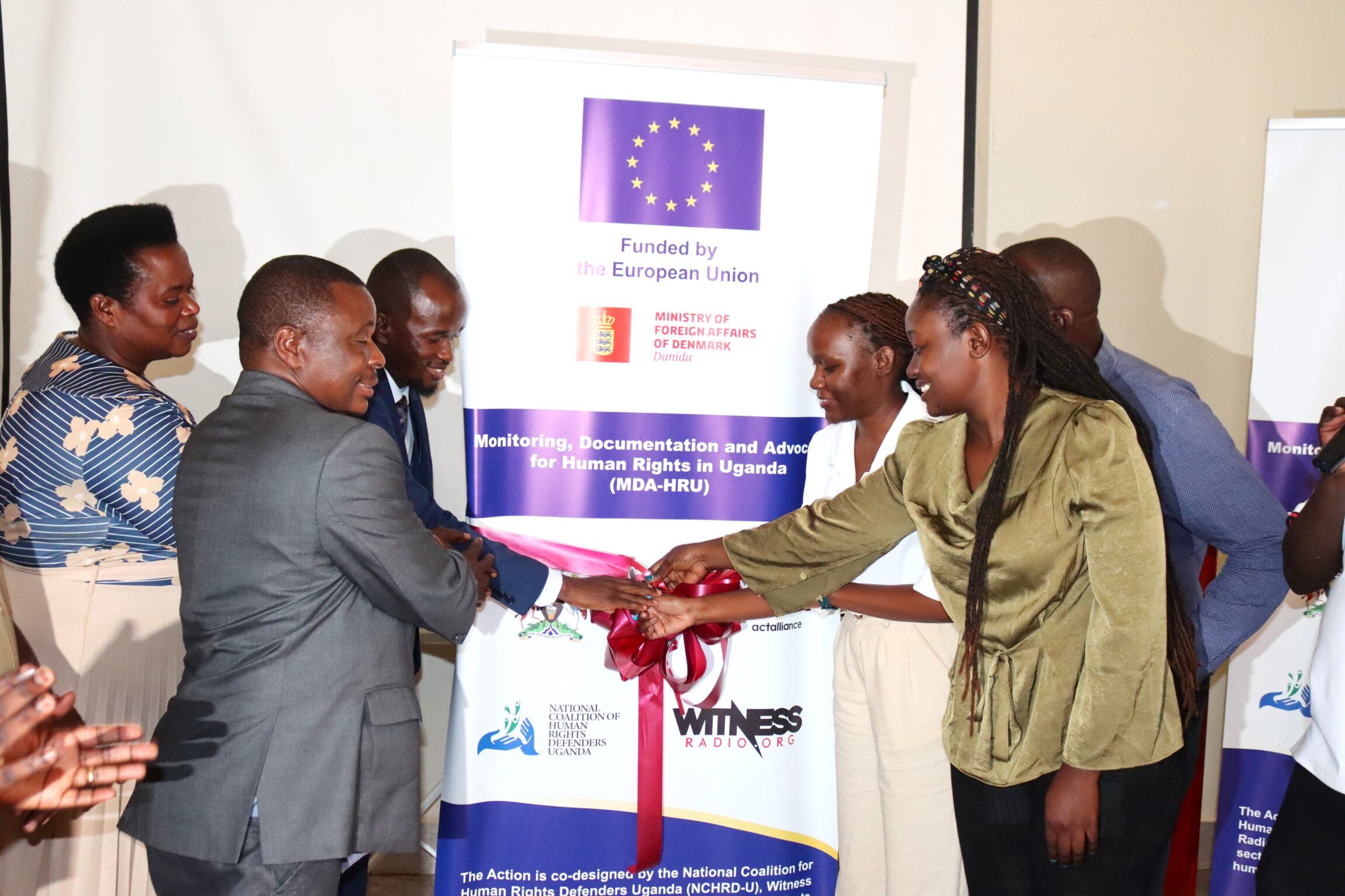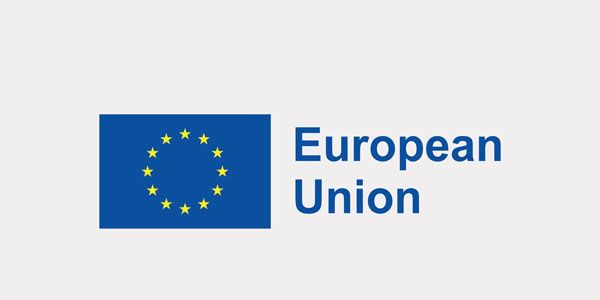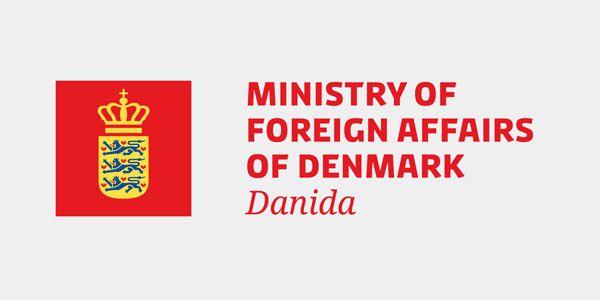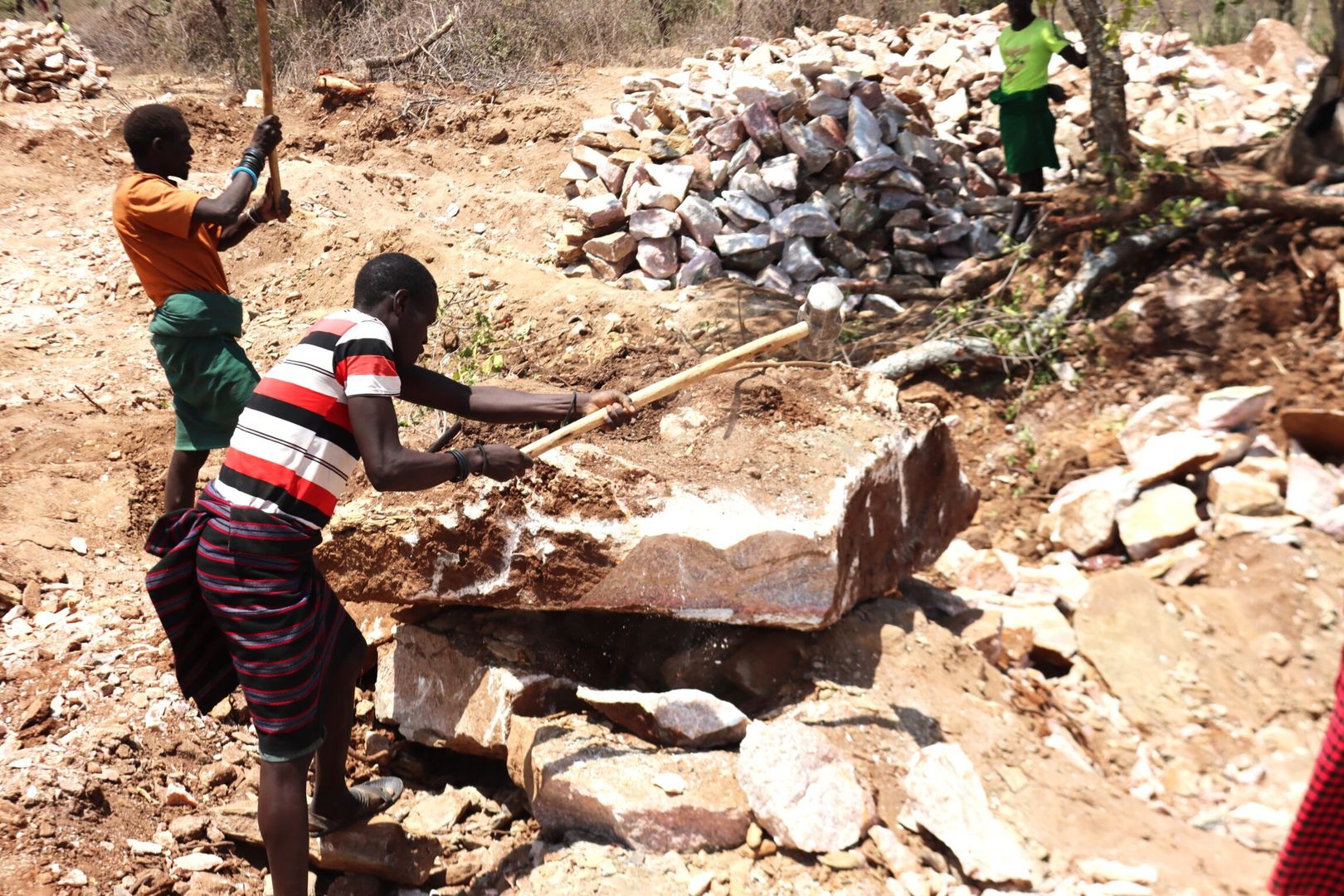The Issue
A surge in Uganda’s Foreign Direct Investments (FDIs) – primarily in the power, agriculture, and construction sectors – has led to issues of environmental degradation, labor rights, and land rights. Reports show massive land grabbing for agribusiness and mineral extraction, with communities in Kiryandongo, Kikuube, Mubende, and Moroto experiencing massive evictionss.
Over 60% of Karamoja’s land is under mineral concessions for investors, disproportionately impacting marginalized groups like women, girls, and children. Limited corporate and government accountability creates intersectional inequalities, and communities lack the power to challenge investors or advocate for local development.
Community and individual Land and Environmental Defenders (LEDs) play a crucial role in protecting the environment and defending land rights in Uganda. However, they are often branded as ‘enemies of development’. The country’s civic space situation is repressed, posing difficulties for Human Rights Defenders challenging business operations that violate community rights.
There has been documented attacks on LEDs in Uganda, including those challenging community rights under EACOP (The East African Crude Oil Pipeline) and Kiryandongo Sugar. 28 land defenders in Mubende and those in the oil and gas sector have been arrested. Evidence shows that those defending their land rights are being sued by the government for unfair compensation. However, there is a weak capacity at the grassroots level to monitor and document specific human rights violations. Incomplete documentation and non-existent investigations in Uganda are leading to a culture of impunity in corporate violations and attacks on human rights defenders (HRDs). This has resulted in increased risks for LEDs, perpetrated by both government and businesses.
The Project
This project addresses land and environmental rights violations in Uganda by promoting accountability and a multi-stakeholder approach. It addresses the limited capacity among LEDs to address these violations, particularly the disproportionate effects of government actions on indigenous communities and marginalized groups. The project also aims to provide credible information about the impacts of the environment and natural resources sector on violations, ensuring that violations are reported, documented, and investigated.

The Change
The project aims to create a mass of land and rights defenders in communities and districts, allowing them to participate in policymaking and development processes. This involves sub-regional HRDs, community LEDs, and consortium partners, ensuring community members are aware of legal frameworks protecting their rights and environment.
Another component that will be improved is the economic opportunities for communities through responsible investments, sustainable use of environment and natural resources, secure land access, income-generating activities, livelihood security, and reduced vulnerability to environmental shocks.
The project aims to address land and environmental rights violations among 510,000 community members, focusing on those at risk. Implemented by 570 HRDs and community LEDs, it will ensure protection for frontline HRDs, contribute to an accountability culture and reduce corporate impunity through documented evidence and online documentation.
Lastly, the project will protect land and environmental rights, including those of community LEDs, by implementing legal and policy frameworks. It will improve efficiency, involve private sector and community social structures, build LED capacity, raise awareness of human rights policies, and promote specific policies. It will empower stakeholders, establish community-driven advocacy structures, and contribute to the national agenda by prioritizing sustainable development and natural resource governance policies.
The Results
Key Achievements of 2024:
- 77 LEDs in Uganda have received emergency and protection services, safety and security training, and improved understanding of potential risks and threats in their day-to-day work in land and environmental defense.
- 239 LEDs in mid-western and Karamoja have been trained in effective documentation, monitoring, and reporting of environmental human rights violations. This has resulted in the documentation of 7 cases in Karamoja and 65 cases in mid-western sub-regions.
- In the first year of implementation, the project documented 72 land and environmental human rights abuses and violations. Engagements have been held with the private sector in mid-western Uganda to hold them accountable for some of the violations. Complaints have been lodged with relevant accountability mechanisms, including the Compliance Advisory Ombudsman (CAO) and the Independent Complaint Mechanism of the Dutch Entrepreneurship Bank (FMO).
- The project has built relationships with duty bearers at local and national levels, laying the foundation for accountability from state actors and the private sector for human rights abuses and violations in the mid-western and Karamoja sub-regions of Uganda.
- A Local-to-Local Learning and Capacity Sharing Forum in Karamoja, Uganda, was held on 2 July 2024 to promote knowledge sharing and adoption of good practices among Human Rights Disciplined (HRDs). The forum attracted 35 participants, focusing on human rights violations in their districts. HRDs discussed best practices in Monitoring, Documentation, and Reporting (MDR) and explored strategies to address these challenges.
- Risk assessments were conducted in the Karamoja and Mid-Western regions to identify key risk drivers, particularly those related to legal compliance. 20 organizations were assessed for legal compliance risks, revealing that many NGOs are unaware of their legal obligations and do not allocate funds or resources for legal support. Action partners will work with these organizations to address identified gaps.
- A training session was held for 25 (11 Female, 14 Male) LEDs/HRDs from the Mid-Western region of Uganda, covering key topics in MDR and understanding national and international human rights frameworks. Participants learned how to document human rights violations using these frameworks. Two training sessions were held in November and February 2023, attracting 54 participants. HRDs were equipped with skills to conduct risk assessments, contextual and stakeholder analysis, and enforce security measures.
- 100% of the target was achieved with 160 (71 female, 89 male) LEDs trained in 4 workshops on monitoring, documentation, and reporting of land and environmental HR violations and personal safety protocols for improved safety and security in the Karamoja and Mid-Western region. The documented evidence will be used to hold human rights violators accountable and seek justice for the affected communities. The project aimed to establish digital innovative solutions for HRDs working on Land and Environment issues. Three out of the targeted four solutions were established, including the development of unstructured supplementary service data and the reactivation of the NCHRD-U toll-free line. These tools were used by HRDs to report cases of violations and monitor the working environment.
- An AI Chatbot was developed to allow HRDs to report land-related HR violations unanimously. A capacity building initiative was organized for duty bearers from the Karamoja sub-region, which attracted 18 participants. Participants learned about national and international legal frameworks governing business and human rights, including the National Action Plan on Business and Human Rights, UNGPs, and the Corporate Sustainability Due Diligence Directive (CSDD). They pledged to advocate for communal land associations and affirmative action in the education system.
- Advocacy campaigns were held in the Mid-Western and Karamoja sub-regions, with 15 participants each, focusing on critical emerging issues affecting HRDs, such as women’s concerns, engagement with state actors, and private sector engagement. Radio talks were held on Ateker FM in Moroto and Spice FM in Hoima, providing a platform for public information on land and environmental issues and addressing marginalized groups’ experiences.
- The 5th Symposium on Business and Human Rights was held on 6 and 7 November 2023 in Kampala, bringing together BHR experts, academics, and practitioners to discuss the intersection of business practices and human rights. The symposium covered various aspects of business and human rights, including children’s rights, human rights and land-based investments, independent accountability mechanisms (IAMs), grievance handling mechanisms on the oil and gas sector, and the state of business and human rights in Uganda. The EU Delegation in Uganda shared information on the EU Corporate Sustainability Due Diligence Directive (CSDD). Future symposiums should include more private sector actors in discussions on Business and Human Rights.
The Partners
DCA is working with two local partners to implement the project:
Witness Radio:

Witness Radio is a non-partisan and non-profit network of human rights investigative journalists, lawyers, and social workers using legal aid support and media approaches to promote and protect economic, social and cultural rights in Uganda.
National Coalition of Human Rights Defenders Uganda (NCHRD-U):

NCHRD-U is a Ugandan organization playing a unique role in coordinating HRDs in Uganda to work collectively in promoting synergy, cooperation and collaboration to effectively advance the protection and safety for HRDs.
About this project
Project Title: Monitoring, Documentation and Advocacy for Human Rights in Uganda
Timeline: October 2023 – October 2026
Local Partners: National Coalition for Human Rights Defenders Uganda (NCHRD-U) and Witness Radio (WR)
Amount: 750,000 EUR
Number of people reached: 590 Human Rights Defenders and LEDs
Donors: European Union (main donor) and Danida



